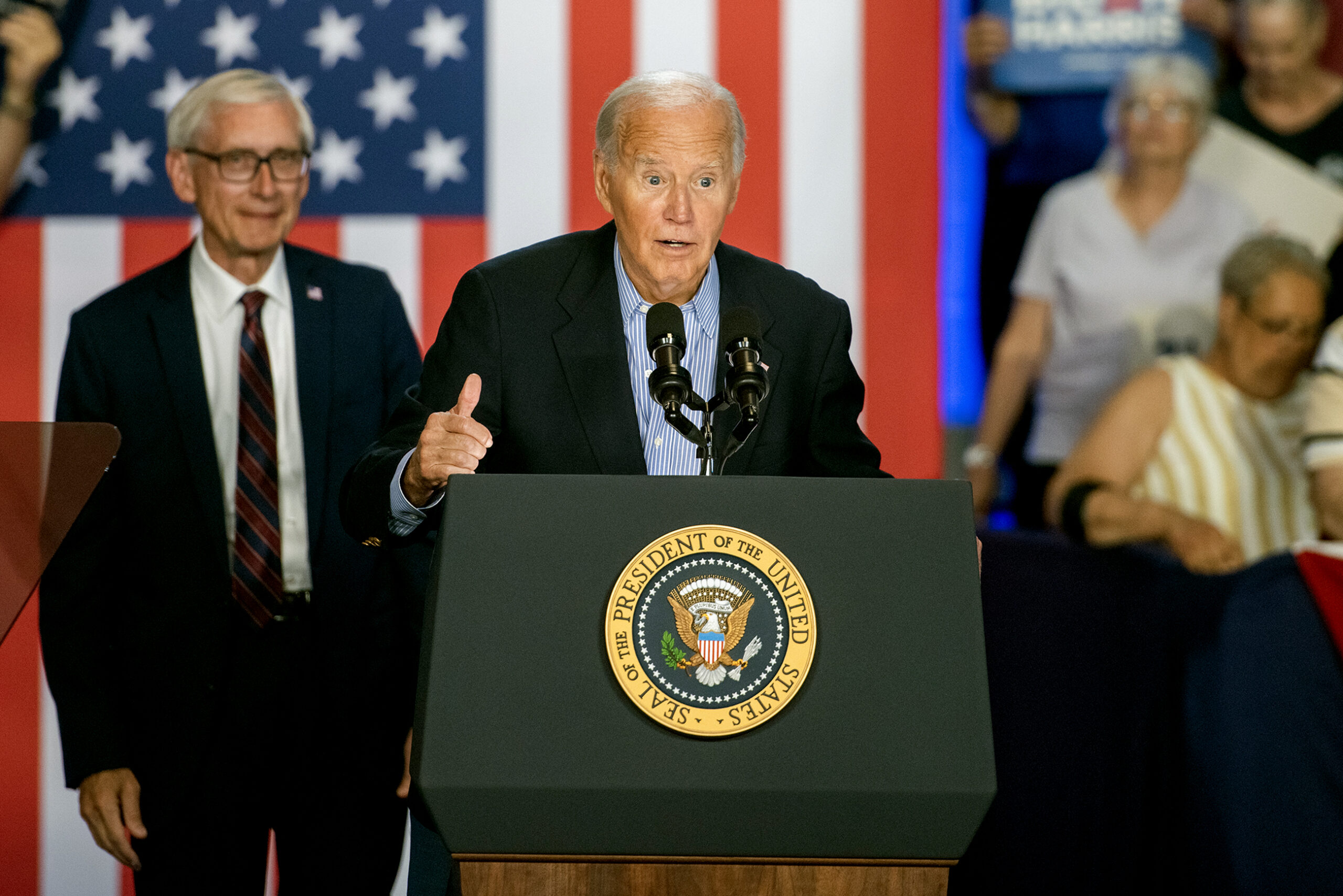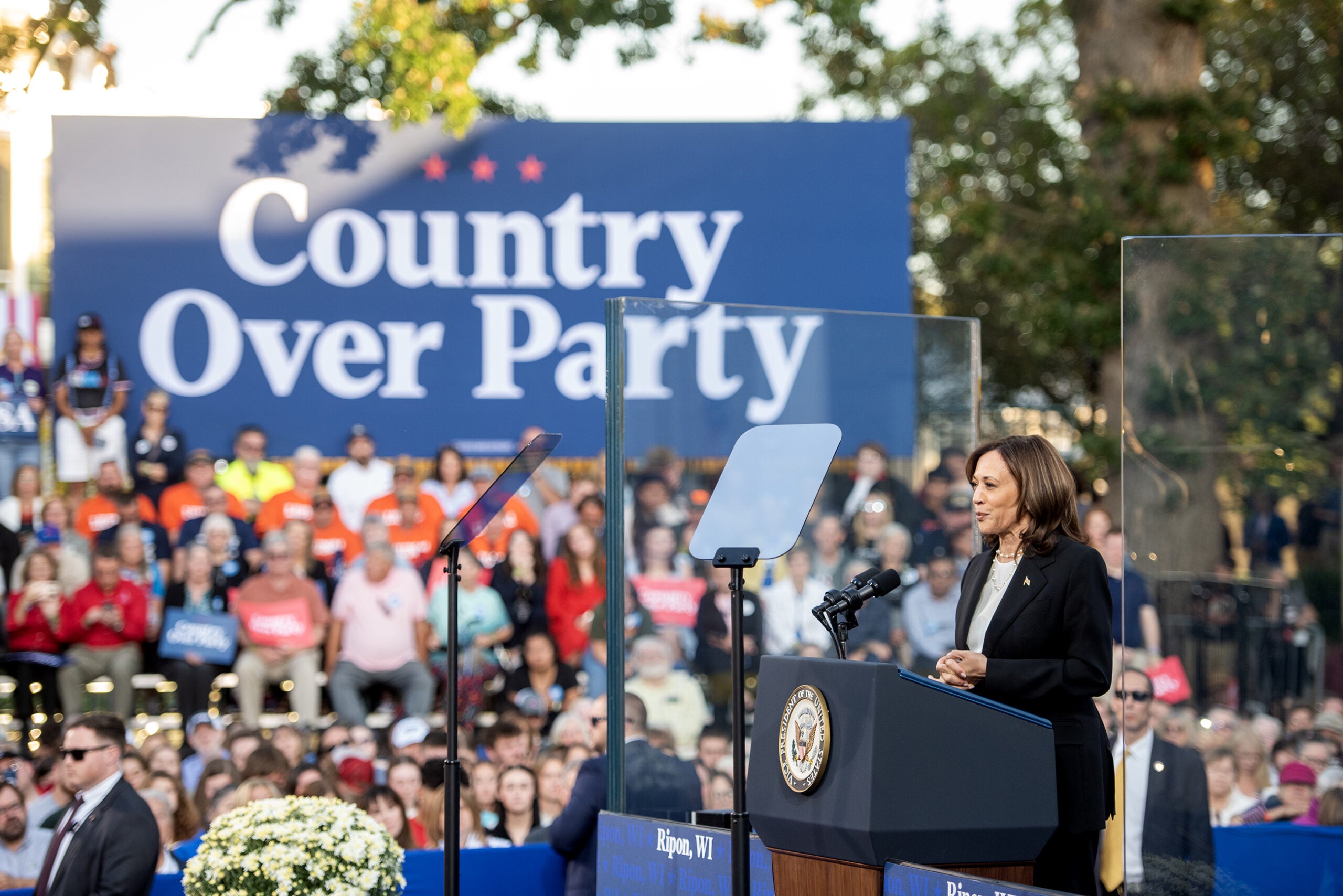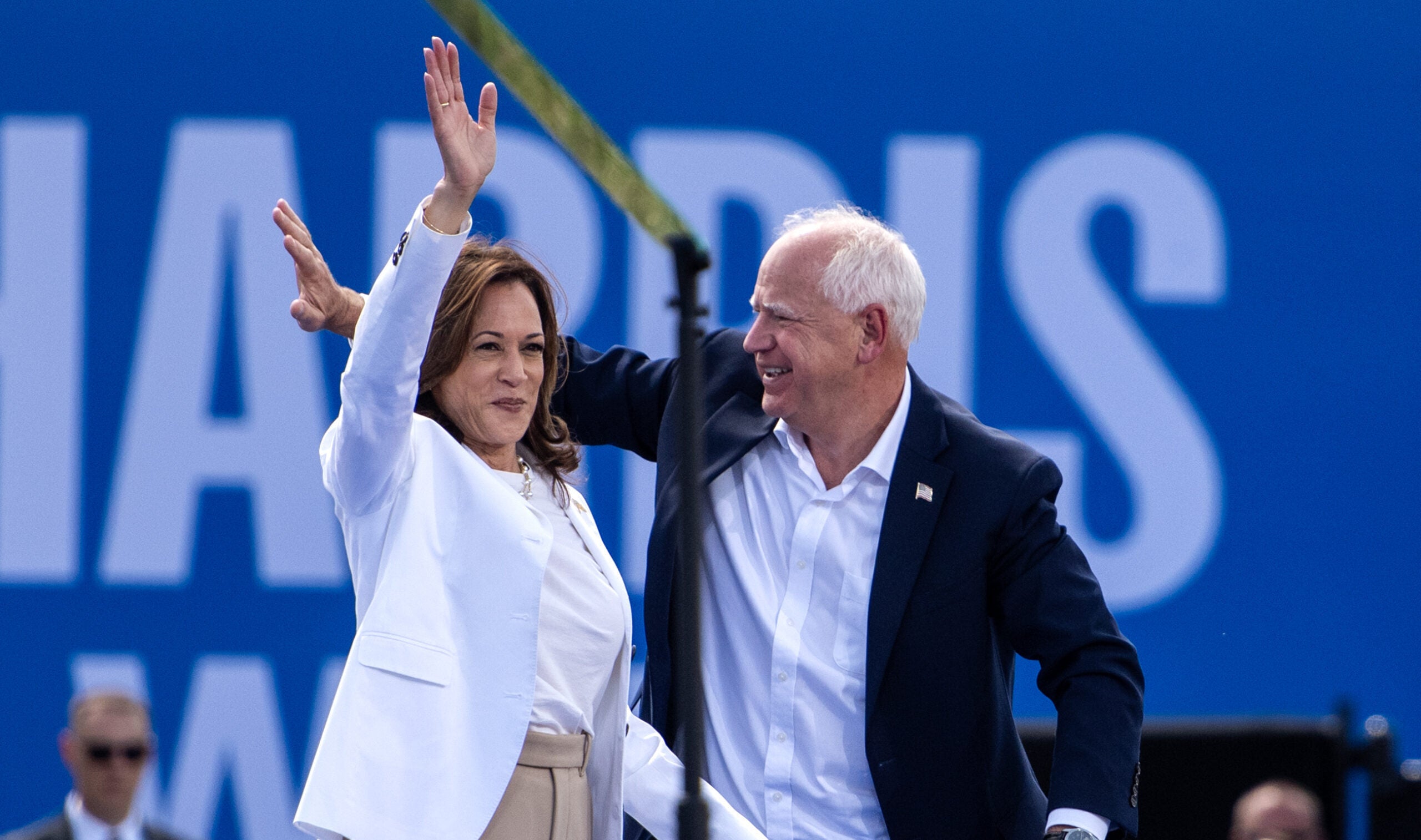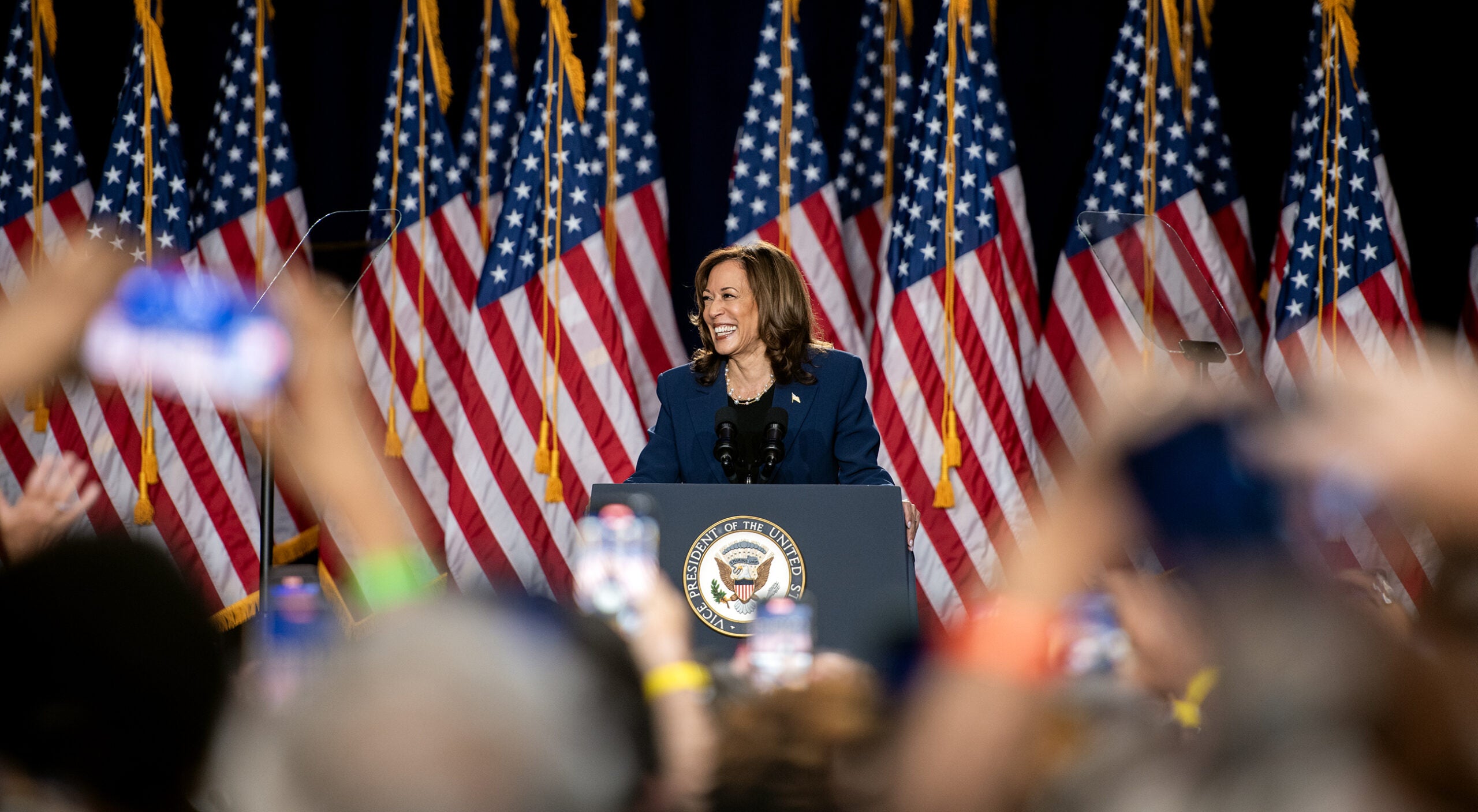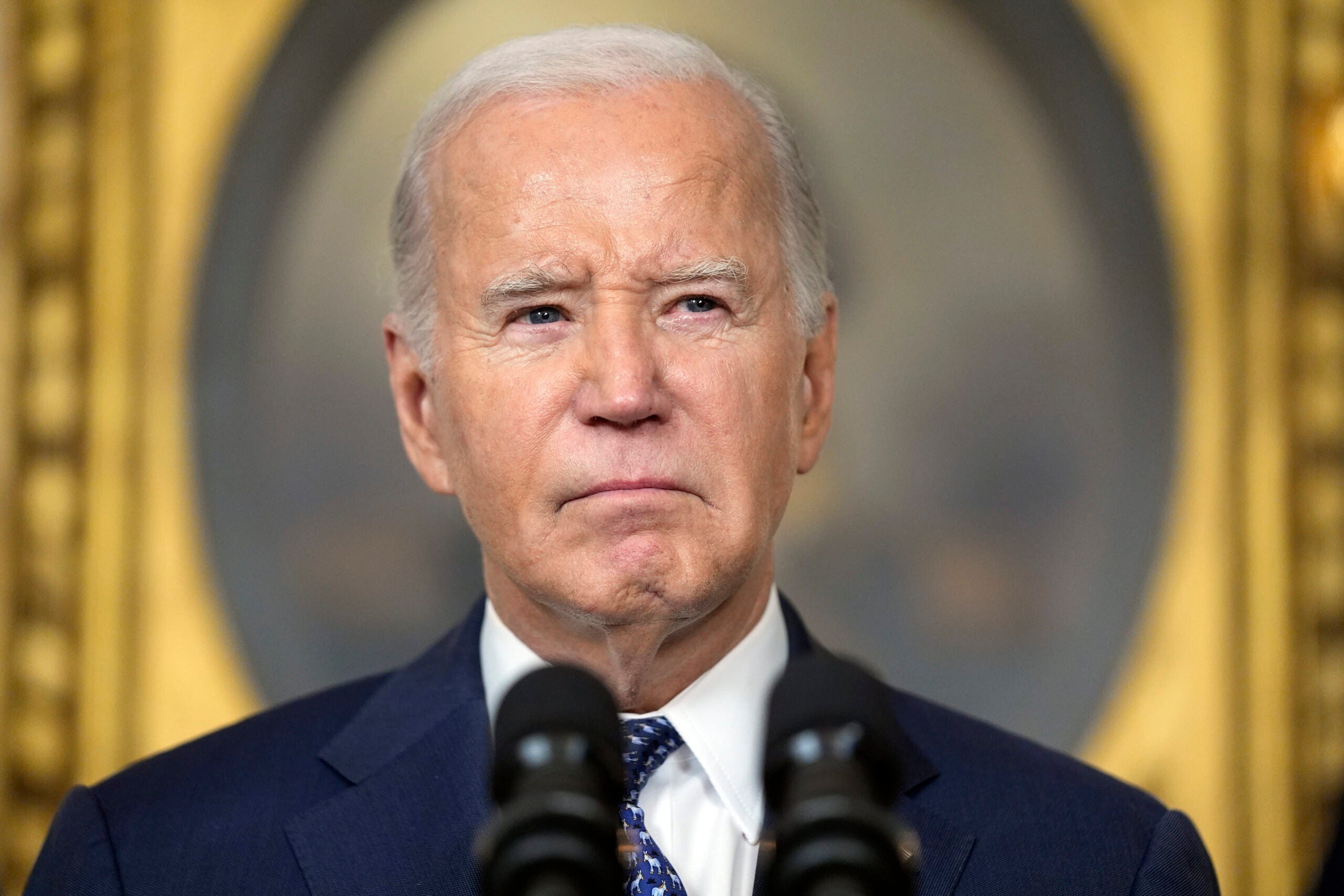President Joe Biden dropped out of the 2024 race for the White House on Sunday, ending his bid for reelection following a disastrous debate with Donald Trump that raised doubts about his fitness for office just four months before the election.
The decision comes after escalating pressure from Biden’s Democratic allies to step aside following the June 27 debate, in which the 81-year-old president trailed off, often gave nonsensical answers and failed to call out the former president’s many falsehoods. Biden endorsed Vice President Kamala Harris to take on Trump, and encouraged his party to united behind her.
Biden plans to serve out the remainder of his term in office, which ends at noon ET on Jan. 20, 2025.
Stay informed on the latest news
Sign up for WPR’s email newsletter.
“It has been the greatest honor of my life to serve as your President. And while it has been my intention to seek reelection, I believe it is in the best interest of my party and the country for me to stand down and to focus solely on fulfilling my duties as President for the remainder of my term,” Biden wrote in a letter posted to his X account.
Nearly 30 minutes later, Biden throw his support behind Harris, the party’s instant favorite for the nomination at its August convention in Chicago.
“Today I want to offer my full support and endorsement for Kamala to be the nominee of our party this year,” he said in another post on X. “Democrats — it’s time to come together and beat Trump.”
Harris is scheduled to campaign in Milwaukee on Tuesday.
Biden’s decision came as he has been isolating at his Delaware beach house after being diagnosed with COVID-19 last week, huddling with a shrinking circle of close confidants and family members about his political future. Biden said he would address the nation later this week to provide “detail” about his decision.
The White House confirmed the authenticity of the letter.
The announcement is the latest jolt to a campaign for the White House that both political parties see as the most consequential election in generations, coming just days after the attempted assassination of Trump at a Pennsylvania rally.
A party’s presumptive presidential nominee has never stepped out of the race so close to the election. The closest parallel would be President Lyndon Johnson who, besieged by the Vietnam War, announced in March 1968 that he would not seek another term.
Now, Democrats have to urgently try to bring coherence to the nominating process in a matter of weeks and persuade voters in a stunningly short amount of time that their nominee can handle the job and beat Trump. And for his part, Trump must shift his focus to a new opponent after years of training his attention on Biden.
The decision marks a swift and stunning end to Biden’s 52 years in electoral politics, as donors, lawmakers and even aides expressed to him their doubts that he could convince voters that he could plausibly handle the job for another four years.
Biden won the vast majority of delegates and every nominating contest but one, which would have made his nomination a formality. Now that he has dropped out, those delegates will be free to support another candidate.
Harris, 59, appeared to be the natural successor, in large part because she is the only candidate who can directly tap into the Biden campaign’s war chest, according to federal campaign finance rules.
Biden’s backing helps clear the way for Harris, but a smooth transition is by no means assured.
The Democratic National Convention is scheduled to be held Aug. 19-22 in Chicago, but the party had announced that it would hold a virtual roll call to formally nominate Biden before in-person proceedings begin.
It remained to be seen whether other candidates would challenge Harris for the nomination or how party may need to adjust its rules again to smooth Harris’ nomination on the floor.
In 2020, Biden pitched himself as a transitional figure who wanted to be a bridge to a new generation of leaders. But once he secured the job he spent decades struggling to attain, he was reluctant to part with it.
Biden was once asked whether any other Democrats could beat Trump.
“Probably 50 of them,” Biden replied. “No, I’m not the only one who can defeat him, but I will defeat him.”
Biden is already the country’s oldest president and had insisted repeatedly that he was up for the challenge of another campaign and another term, telling voters all they had to was “watch me.”
And watch him they did. His poor debate performance prompted a cascade of anxiety from Democrats and donors who said publicly what some had said privately for months, that they did not think he was up to the job for four more years.
Concerns over Biden’s age have dogged him since he announced he was running for reelection, though Trump is just three years younger at 78. Most Americans view the president as too old for a second term, according to an August 2023 poll from The Associated Press-NORC Center for Public Affairs Research. A majority also doubt his mental capability to be president, though that is also a weakness for Trump.
Biden often remarked that he was not as young as he used to be, doesn’t walk as easily or speak as smoothly, but that he had wisdom and decades of experience, which were worth a whole lot.
“I give you my word as a Biden. I would not be running again if I didn’t believe with all my heart and soul I can do this job,” he told supporters at a rally in North Carolina a day after the debate. “Because, quite frankly, the stakes are too high.”
But voters had other problems with him, too — he has been deeply unpopular as a leader even as his administration steered the nation through recovery from a global pandemic, presided over a booming economy and passed major pieces of bipartisan legislation that will impact the nation for years to come. A majority of Americans disapprove of the way he’s handling his job, and he’s faced persistently low approval ratings on key issues including the economy and immigration.
Biden’s age surfaced as a major factor during an investigation of his handling of classified documents. Special counsel Robert Hur said in February that the president came across in interviews with investigators as “a sympathetic, well-meaning, elderly man with a poor memory.”
The president’s allies seized on the statement as gratuitous and criticized Hur for including it in his report, and Biden himself angrily pushed back on descriptions of how he spoke about his late son.
Biden’s motivation for running was deeply intertwined with Trump. He had retired from public service following eight years serving as vice president under Barack Obama and the death of his son Beau but decided to run after Trump’s comments following a “Unite the Right” rally in Charlottesville, Virginia, in 2017, when white supremacists descended on the city to protest the removal of its Confederate memorials.
Trump said: “You had some very bad people in the group, but you also had people that were very fine people on both sides. On both sides.”
That a sitting president didn’t unequivocally condemn racism and white supremacy deeply offended Biden. Then, Biden won the 2020 election and Trump refused to concede and stood by for hours while his supporters stormed the U.S. Capitol on Jan. 6, 2021, beating and bloodying law enforcement in a failed attempt to overturn the certification of Biden’s win.
“If Trump wasn’t running, I’m not sure I’d be running,” Biden once said during at a campaign event.
Trump’s campaign did not immediately respond to a request for comment on Biden’s decision to leave the race, but he and his team had made their preference for facing Biden clear.
Despite making clear their preference for facing Biden, Trump’s campaign has also ramped up its attacks on Harris as pressure on Biden to step down has intensified in recent weeks.
___
Superville reported from Rehoboth Beach, Delaware. Associated Press writer Jill Colvin in New York contributed to this report.
© Copyright 2025 by The Associated Press. All rights reserved. This material may not be published, broadcast, rewritten or redistributed.
